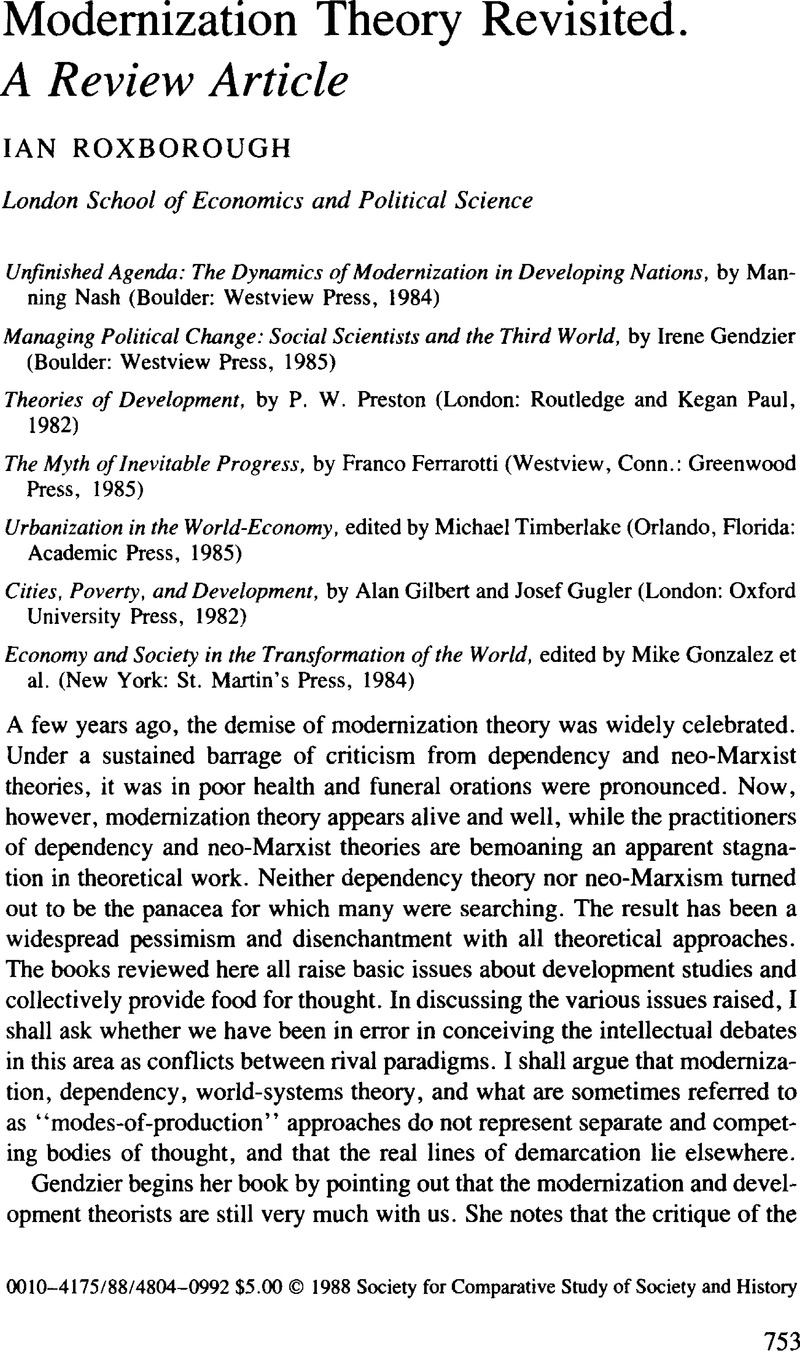Published online by Cambridge University Press: 03 June 2009

1 Bossen, T., “The Promise of Theory,” in Promise of Development, Klarén, P. and Bossen, T., eds. (Boulder, Westview Press, 1986).Google Scholar
2 By this I mean that “modern”for Weberians and Parsonians refers to the depersonalization of political and economic roles, and for Marxists it refers to the extension of market relations.
3 Tilly, Charles, ed., The Formation of National States in Western Europe (Princeton:Princeton University Press, 1975).Google Scholar
4 Mann, M., The Sources of Social Power (Cambridge:Cambridge University Press, 1986).CrossRefGoogle Scholar
5 This is a rather brief and apparently arbitrary definition of what is a much-disputed phenomenon. I believe it contains most of the essential elements of Bloch's, Marc definition in Feudal Society (London:Routledge and Kegan Paul, 1961).Google Scholar
6 Of course, it is always possible to argue that change is continuous and multifaceted, and that there are, in fact, no discrete stages in history. However, if we are to talk about development or modernization, there are a number of advantages to using a stages model. It focusses attention, for example, on the internal “logic”of social systems, and therefore on their internal contradictions and on the forces making for change. But if a stages model is adopted, the “big gap”problem must be resolved.
7 Warren, Bill, Imperialism: Pioneer of Capitalism (London:New Left Books, 1980).Google Scholar